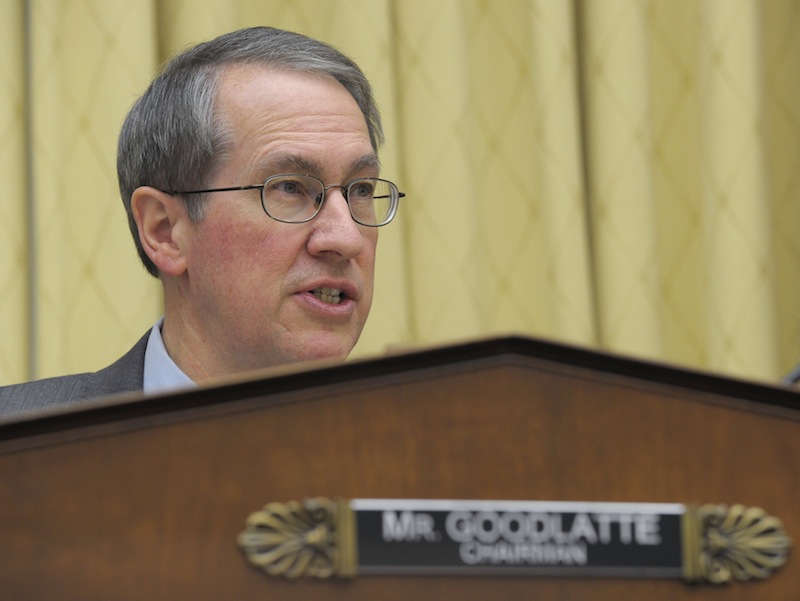In a bad sign for reform, the Republican chairman of the House’s immigration policy committee told a conservative radio host Monday that he opposes a path to citizenship even for young documented people brought to the United States as children, often referred to as DREAMers.
House Judiciary Chair Bob Goodlatte (R-VA) told Hugh Hewitt that he would prioritize giving legal status to children who had been brought to the country illegally, but would stop short of giving them a path to citizenship.
“If you were to do something, I would start first of all with children who were brought here illegally by their parents. They’ve grown up here. They’ve been educated here. They are ready to face the world and they have no documents. I think there’s a more compelling argument to be made for them,” Goodlatte said, in remarks first caught by Salon. “But, even for them, I would say that they get a legal status in the United States and not a pathway to citizenship that is created especially for them. In other words, they get that legal status if they have an employer who says I’ve got a job which I can’t find a U.S. citizen and I want to petition for them, ah, they can do that, but I wouldn’t give them the pathway to a Green Card and ultimately citizenship based simply on their entering the country illegally.”
Some kind of bipartisan agreement on citizenship status for so-called DREAMers has long been considered one of the easier-to-achieve elements of comprehensive immigration reform, but Goodlatte’s comments cast doubt on whether even that provision is within reach.
Goodlatte, whom Speaker John Boehner (R-OH) is deferring to on immigration reform, said he opposes any legalization component, period, until “after you have the borders secure and these enforcement mechanisms in place.”
“[T]his is another major criticism I have with the Senate bill,” he said. “I would not give what I call a special pathway to citizenship to anyone who’s illegally in the United States.”
Goodlatte’s comments came the same day he told constituents at a town hall meeting that he opposes a “special” pathway to citizenship for people in the country illegally. He criticized the policy in the bipartisan Senate-passed immigration bill to put unauthorized immigrants on a 13-year pathway to citizenship after they learn English and pay a fine and back taxes.
“The folks who want to have a path to citizenship have held everything else hostage,” Goodlatte told constituents, admitting that President Obama may not accept the House GOP’s approach. “Now we want to say, ‘Look, we understand what you want but we think a legal status in the United States but not a special path to citizenship might be appropriate.'”
Supporters of reform privately downplayed Goodlatte’s remarks, noting that he isn’t closing the door to a legalization component, and that if the House passes even a narrow one, it can be expanded in a House-Senate conference committee. That’s the path Democrats are eying for reform, although it’s narrow and contains various landmines.
The congressman’s comments are a blow to the prospects of reform, despite the various House Republicans who have come out for the push lately. According to supporters, a passable overhaul necessitates a pathway to citizenship for those in the U.S. illegally. A road for DREAMers to become American citizens is among the most popular components of reform. Without that, not only Democrats but important constituencies like Hispanic groups and labor unions would likely pull their support for reform and collapse the effort.
“I would not give them a status that people, who have for generations followed the law — and sometimes it takes them a decade or more to comply with the law — to legally immigrate to the United States,” Goodlatte told Hewitt. “The Senate bill gives immediate legal status to 11 million people and then it has a long pathway to citizenship, at least 10 years before they can even apply for their Green Card, but it allows them to do that even though they do not have a family member who is already a United States citizen or permanent resident, a spouse, a employer who can show that they can’t find a U.S. citizen to fill the job.”






